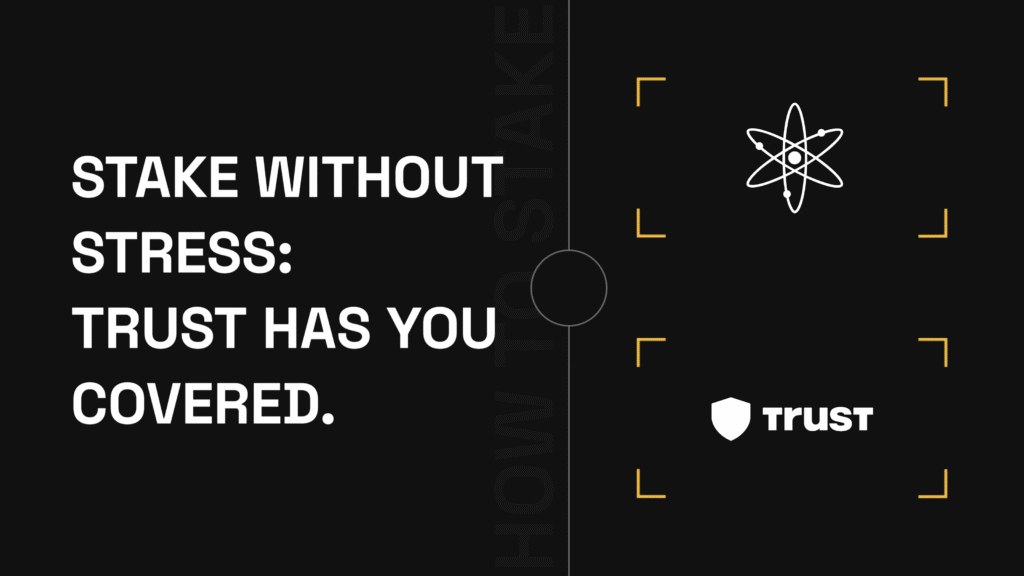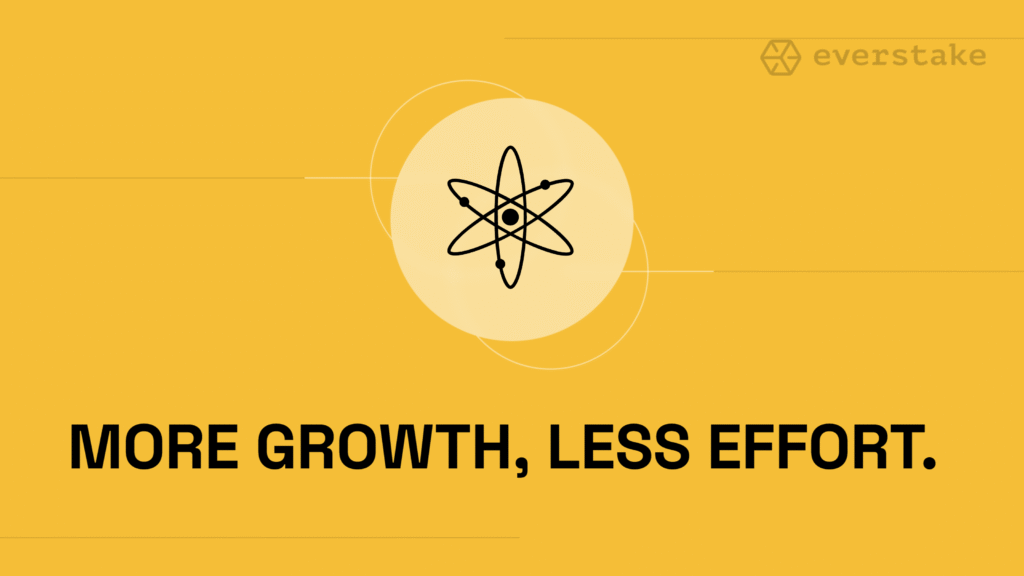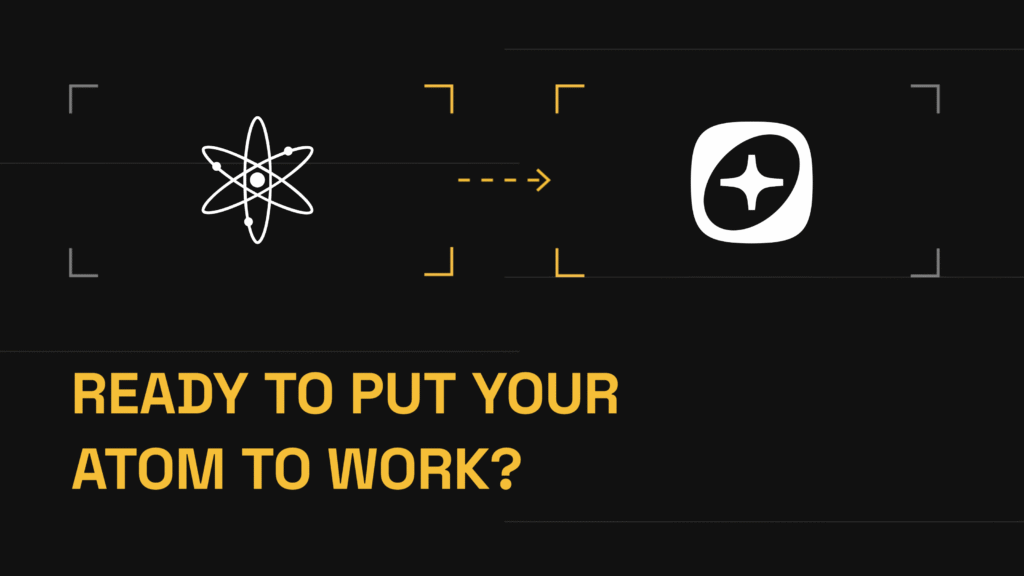
Cosmos
Interchain Security by Informal and Everstake: Cosmocast Recap
Last week, Everstake hosted a live Twitter Space (Cosmocast) that gave the community more insights into Interchain Security aimed to spread
NOV 04, 2022
Table of Contents
Interchain Security: An Economic Scaling of Cosmos
Everstake: An Early Participant of Interchain Security
Cosmos Cross-Chain Projects Associated with Interchain Security
Interchain Security Projects
Mesh Security and Interchain Security
Community Benefits from Interchain Security Consumer Chains
Minimum Voting Power of Consumer Chains
Superfluid Staking and Cross-Stake
Interchain Security Future Plans
Share with your network
Last week, Everstake hosted a live Twitter Space (Cosmocast) that gave the community more insights into Interchain Security aimed to spread the Cosmos Hub security delivered by its validators to other Cosmos-based chains.
The Everstake team was joined by representatives from Informal Systems, the core developing company of Cosmos. The Informal Systems attendees included Marketing and Ecosystem Development manager Jelena Jurić and Cosmos Hub Lead Jehan Tremback.
Below is a recap and summary of the chat discussion.
Interchain Security: An Economic Scaling of Cosmos
Anna Petrenko, Research Analyst at Everstake, started by explaining what the proposed Interchain Security update would mean to developers and validators in the Cosmos ecosystem. She shared that the new feature would enable developers to launch application-specific chains (Consumer Chains) in the Cosmos ecosystem, customized with Cosmos SDK, and that the chains would be secured by the Cosmos Hub validator set.
Confirming the testnet, Jelena said that Interchain Security is one of the main features being added to the Cosmos Hub as the platform transitions to the next phase of development. The goal, she added, is to “create a very secure way to do economic scaling in Cosmos.” That means changing the Hub’s network to make Cosmos appchains secure while utilizing the Cosmos Hub.
The changes will also modify ATOM (the native token of the Cosmos Hub) so that it is used as the preferred collateral for securing the appchains that integrate with Interchain Security. Jelena mentioned that the Cosmos Hub’s entire stake worth around $4 billion would be used to secure those blockchains.
In addition, new “Consumer Chains” utilizing Interchain Security will inherit the security of the Cosmos Hub and will thus rely on the Cosmos Hub validator set to run their nodes instead of creating their own validator set.
Everstake: An Early Participant of Interchain Security
Anna shared about the private Interchain Security testnet that Everstake participated in as one of the early adopters. She mentioned that Everstake worked with Interchain Security to help them prepare for the upcoming incentivized, public Interchain Security testnet. The Everstake team helped with the maintenance and interaction aspects of the Consumer Chains by participating in 14 out of 24 passed proposals. Anna also noted that the Everstake DevOps team was extremely impressed with the high quality docs provided by Informal Systems.
Cosmos Cross-Chain Projects Associated with Interchain Security
The guests were asked about Cosmos cross-chain projects and the technical solutions Interchain Security had for emerging cross-chain and bridging projects. Jehan explained that while they were working with Gravity Bridge, bridges generally required an off-chain component to run. So a signer (software) was used alongside the Cosmos Hub to generate the Ethereum signatures necessary to broadcast transactions on Ethereum.
“I think that obviously it makes a huge amount of sense to have a bridge secured by the Market Cap of the Cosmos Hub,” said Jehan.
Interchain Security Projects
Jelena shared insights into the type of projects they’re looking to support and the criteria for selection. The first category is based on key use cases involving liquid staking. Jelena revealed that the Stride and Lido protocols had been selected as two liquid staking providers to join as Consumer Chains. The Lido protocol will launch on Neutron, a permissionless Smart Contract development platform.
Another project selected is FairBlock, which is a risk communication MEV. Fairblock will specifically benefit from the Interchain Scheduler functionality that allows Cosmos appchains to sell a portion of their blockspace to the marketplace in an effort to incentivize the “efficient” forms of MEV and minimize the more malicious forms.
Jehan noted that right now, they’re focusing their efforts on securing Interchain Security and ensuring that the system works as intended.
Mesh Security and Interchain Security
In the second section of the chat, the guests tackled several questions from the community. One of the listeners wanted to know the relationship between Interchain Security and the Mesh Security system being championed by Osmosis founder Sunny Aggarwal. Jehan explained that the Mesh system is essentially similar to “Interchain Security V3” and that Sunny “basically made it more viable to build.”
Jehan continued that the Interchain Security V3 has its own security flaws or point of failure. And as it turns out, Sunny solved it by allowing Consumer Chains to validate the Cosmos chain via a subset of their own validators, thus creating a mesh network. So if the Cosmos Hub were to run Mesh Security, it could run it as a Provider Chain rather than as a Consumer Chain.
Jehan, however, defended Interchain Security, stating that while Mesh Security can be an option to diversify the community, Interchain Security provides “the most secure way” to launch a project on the Cosmos Hub.
More details about the cost of implementing different combinations of Mesh Security vs. Interchain Security V1 will be revealed soon.
Community Benefits from Interchain Security Consumer Chains
Jehan pointed out that the developer community stands to benefit massively from running Consumer Chains on Interchain Security V1. Consumer Chains get added to the network only through governance, meaning the community has the right to decide which chains they want to run. Furthermore, governance carefully curates every Cosmos Consumer Chain to ensure that only chains with a high degree of economic security are accepted.
In the future, these chains will be able to interact with one another in the ATOM Economic Zone (as Sommelier co-founder Zaki Manian calls it), creating unlimited opportunities for Cosmos chains. According to Cosmos Whitepaper 2.0, a proposal called the Interchain Allocator will allow the Cosmos Hub Treasury to fund new Cosmos chains through on-chain agreements.
Minimum Voting Power of Consumer Chains
Continuing on the subject of Consumer Chains, a listener asked whether it was possible for validators to opt out of voting and whether a minimum voting power was required to approve a Consumer Chain. Jehan explained that allowing validators to opt out of validating Consumer Chains would create “a subset problem” that would essentially give users no security guarantee.
Even if delegators were to opt out, it is unlikely that a Consumer Chain unpopular among validators would be added to the network since validators can still use delegators’ tokens to vote anyway. However, if delegators insist on adding a Consumer Chain that validators have rejected, then the standard governance rules apply. In other words, one-third of the chain’s validators must vote for it to run.
The proposal must also be submitted within a specific time limit called Spawntime upon which the proposal passes. Once the Spawntime elapses, Cosmos creates a Genesis file for validators to use to start the Consumer Chain. The validators have about one or two weeks to start the Consumer Chain, otherwise it collapses and the proposal fails. However, the Consumer Chain developers can re-submit the proposal or make changes for the validators to like it.
Unfortunately, if you’re among the minority validators that don’t want to run a Consumer Chain, you will get slashed for downtime.
Superfluid Staking and Cross-Stake
Jehan noted that they’re exploring how superfluid staking, a feature that enables users to stake 50% of their underlying OSMO LP position, can be extended to other chains in the Interchain network. Superfluid staking allows staked tokens to be actively used as liquidity while continuing to serve as a source of security and stability for blockchains.
Interchain Security Future Plans
Interchain Security will launch early next year, but in the meantime, the team is working on various aspects of the ATOM 2.0 Whitepaper. Jehan revealed that they’re already working with the data availability layer Celestia to roll out the Interchain Scheduler and settlement layer on Consumer Chains. The proposed solutions aim to better align the ecosystem incentives and position ATOM to benefit from the growth of the Interchain network. The goal is to have new Hub releases once every month and continue to support Interchain Security for the initial few appchains that will launch on the network.
That is all for this week’s Interchain Security Twitter Space recap and updates. Join us next time on Everstake Twitter for more news and updates.
Share with your network
Related Articles

Cosmos
How to Stake ATOM via Trust Wallet: a Comprehensive Guide
Staking ATOM through Trust Wallet takes just minutes. Our detailed guide shows how to set up your wallet, choose a validator, and manage your rewards safely and confidently.
OCT 27, 2025

Cosmos
How to Auto-Compound Staking Rewards in Cosmos Chains with REStake App
Manual restaking takes time. REStake keeps your Cosmos delegation active automatically: securely, transparently, and under your full control.
OCT 23, 2025

Cosmos
How to Stake ATOM with Keplr Wallet: A Step-by-Step Guide
From wallet setup to reward claiming, this guide covers everything you need to start staking ATOM on Keplr: securely and without guesswork.
OCT 07, 2025
Disclaimer
Everstake, Inc. or any of its affiliates is a software platform that provides infrastructure tools and resources for users but does not offer investment advice or investment opportunities, manage funds, facilitate collective investment schemes, provide financial services or take custody of, or otherwise hold or manage, customer assets. Everstake, Inc. or any of its affiliates does not conduct any independent diligence on or substantive review of any blockchain asset, digital currency, cryptocurrency or associated funds. Everstake, Inc. or any of its affiliates’s provision of technology services allowing a user to stake digital assets is not an endorsement or a recommendation of any digital assets by it. Users are fully and solely responsible for evaluating whether to stake digital assets.
Sign Up for
Our Newsletter
By submitting this form, you are acknowledging that you have read and agree to our Privacy Notice, which details how we collect and use your information.